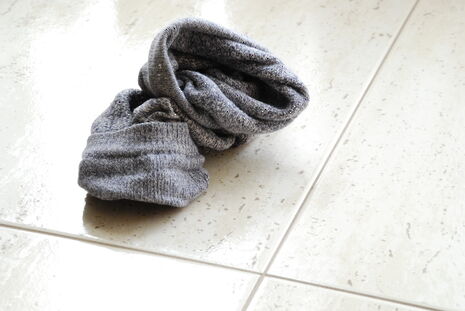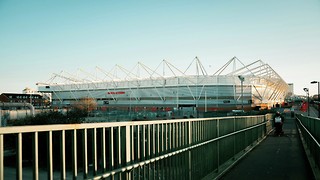Grief, gaps and growing up
When your entire life crumbles in your first term of university. And then you have to rebuild it.

A few weeks ago my best friends would have laughed at this subtitle, citing my previous (and I’d like to point out conscious) ridiculous exaggerations of the toils and troubles of my life. Such as the time when I dropped my newly-cooked pasta bake in the bin in the middle of a week two crisis over the fact I had never read a Dickens novel and was now required to write a 1500 word essay on the books I had never read.
It was after the end of last term that things actually crumbled. I had gone for dinner with my parents in London on a Monday in late November. At the restaurant, I watched my mother break down in tears once my father left the room. I have only ever seen my mother cry a few times in my life. She was worried about my father’s health; he could barely walk, he wasn’t eating, and – most concerning of all – he was barely touching alcohol. I called my friend on my walk back to the train station, a little drunk and a little more confused, and cried. I was scared, but the next morning I put that mostly down to alcohol and hormones.
“I didn’t know what to say to people when I came back to Cambridge and they asked how my Christmas was”
The night of Selwyn Snow Ball I sent a picture of myself in my dress to Mum and she replied strangely, saying she’s in a low signal area so the picture didn’t come through. I puzzled over where she was for a few minutes but was quickly distracted by the excitement of my first Cambridge ball.
I woke up the next morning to a phone call from Mum asking if I had read her text, I told her I hadn’t, and she started crying. Dad was rushed into hospital on Friday night due to extremely low haemoglobin levels. I came home and two days later we found out he had bowel cancer and it had spread to his liver and his lungs. The next day, once I had driven myself back to Cambridge to move out my things, I get a call from my brother. He was crying. The cancer was terminal. I cried. The friends I had met only eight weeks before hugged me and let me cry. I think I threw a box of tissues on the ground. I was angry.
I was holding his hand as he died. January 7th, around 7pm. It was a Saturday. We were sat in a hospice in our hometown drinking whiskey and eating microwave pasta. The domesticity of these final moments makes me smile even though smiling still kind of hurts. It’s not an easy day to talk about, I’ve only managed to speak to my friends about the reality of watching my father’s hands fade at the edges a few times. I don’t remember the last thing he said to me. He couldn’t talk on the last day. I had spent Christmas caring for him at home, feeding him yoghurt, helping him stand up; I didn’t know what to say to people when I came back to Cambridge and they asked how my Christmas was.
The thing about losing a parent when you’re 18 is that you’re at this kind of borderland between childhood and adulthood. Yes, you’re technically an adult in legal terms, but you still call your parents every time you can’t work out how to make your printer work or you’ve run out of money and need to beg for £20 to do your Aldi shop. I was old enough to be there for all the moments at the end of his life, to help take care of him, to look after him. But I wasn’t really old enough to know how to deal with it. I still feel like a child who wants to call her Dad and hear about his day and hear his usually grumpy Scottish voice tell me I left my socks on the bathroom floor and sigh melodramatically when I drop my phone. I miss his cooking, the way he would scream up the stairs when I didn’t wake up in time for school or for a train I needed to catch. I’m 18 and not ashamed to admit I still really need my parents.
And now here I am, back at university, sat in the library writing an essay – or avoiding writing an essay – and trying to rebuild my life. Re-establishing how I go about my day. I had to renew my car insurance myself, I had to move all my stuff back to Cambridge by myself, work out how to fix my bike, set up a printer. Do all the things I would usually do with my father, alone.
I think there will always be an empty space at the table where my Dad should sit, or in the contacts of my phone where his number should be. The process of rebuilding my life and coming to terms with this loss is accepting this new silence and learning not to be afraid of the gaps
 Features / Beyond the porters’ lodge: is life better outside college?24 February 2026
Features / Beyond the porters’ lodge: is life better outside college?24 February 2026 Theatre / Footlights Spring Revue? Don’t Mind if I Do!25 February 2026
Theatre / Footlights Spring Revue? Don’t Mind if I Do!25 February 2026 News / Cambridge academics sign open letter criticising research funding changes22 February 2026
News / Cambridge academics sign open letter criticising research funding changes22 February 2026 Fashion / The evolution of the academic gown24 February 2026
Fashion / The evolution of the academic gown24 February 2026 News / Student and union protesters hold ‘Trans Liberation Solidarity Rally’ 24 February 2026
News / Student and union protesters hold ‘Trans Liberation Solidarity Rally’ 24 February 2026






![How to Create an Attractive Freelancer Portfolio [5 Tips & Examples]](https://www.varsity.co.uk/images/dyn/ecms/320/180/2026/02/vitaly-gariev-ho2tNOWZYXM-unsplash-scaled.jpg)


